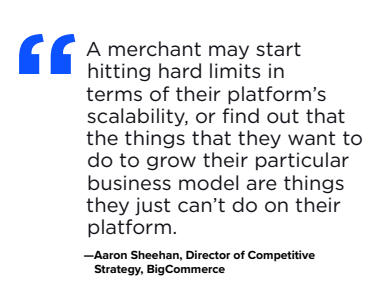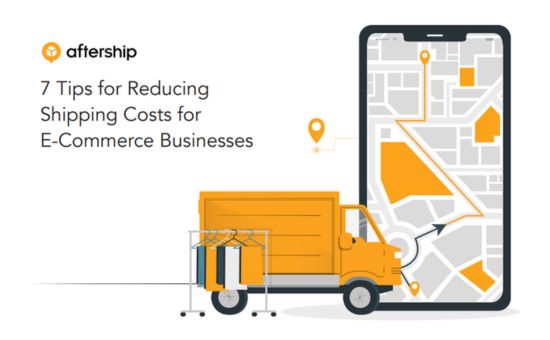Migrate your online store with confidence | BigCommerce
E-Commerce & Retail
As online sales become increasingly vital, many leading retailers are realizing that their current ecommerce platforms no longer meet their needs. Despite recognizing issues such as slow performance, missing features, high costs, or an inability to scale with business growth, fears and risks can often deter them from making a change.
Switching to a platform better suited to your business can significantly boost online sales by increasing conversion rates and average order values while reducing costs. Though migration might seem daunting, the right platform provider can simplify the process.
Addressing Ecommerce Challenges
Retailers considering migrating their ecommerce solutions often face pain points that impede their ability to drive revenue and grow online. Common issues include:
Poor User Experience
Legacy platforms can be hard to maintain and manage, leading to subpar user experiences on both the front- and back-end. Merchants might struggle with slow or buggy customer interactions, increasing the likelihood of cart abandonment. Back-end challenges can also arise, such as the inability to edit orders, lack of abandoned cart features, and difficulty accessing valuable customer insights. These limitations hinder the ability to serve customers effectively.
Lack of Scalability
As merchants aim to enhance customer service, they often find that their ecommerce platform cannot keep up with their growth. Incremental technology additions over time can lead to an unwieldy infrastructure, escalating administrative costs and hampering agility in a competitive market. Expansion needs, such as managing more channels, adding B2B components, or implementing hybrid models, can turn the platform into a cumbersome “Frankenstein’s monster” tech stack.

High Costs
Ecommerce solutions that were once cost-effective may become expensive as newer, more affordable options outmatch their capabilities. Merchants might be paying premium prices for functionality that is now widely available from various vendors at a lower cost.
Security and Compliance
Merchants dealing with custom-built platforms or legacy solutions may face significant security and compliance challenges. Custom checkouts require merchants to manage all aspects of security, compliance, bug fixes, and versioning, often relegating feature development to a lower priority. Additionally, expanding into new areas can introduce new compliance requirements that a legacy solution may not support, complicating matters further.
Ready to overcome your ecommerce challenges and unlock new growth opportunities? Download our comprehensive guide to learn how migrating to a better-suited platform can enhance your online sales and drive business success. Continue reading to discover practical steps and strategies to make the switch seamlessly.
- 1. Facing Ecommerce Challenges
- 2. Common Fears and Concerns about Migration
- 3. Migrating with Confidence
- 4. Replatforming for Success
- 5. How BigCommerce Enables Successful Migrations
- 6. Is It Time to Make the Switch?
Number of Pages:
- 20 pages
Pricing:
- Free
Warning: Undefined array key "sidebar_ads" in /home/dmc/public_html/wp-content/themes/DMC/functions/helpers.php on line 824






